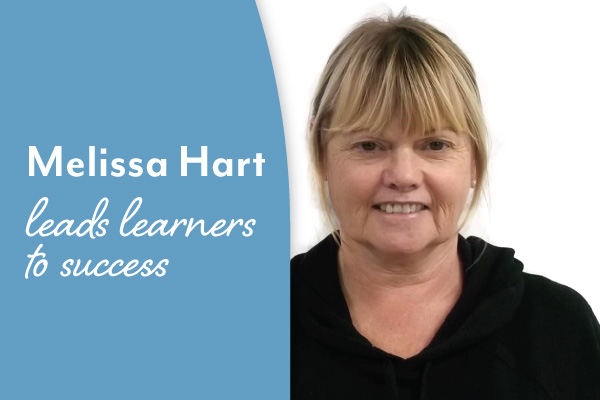As Australian’s population ages, the demand for skilled aged care workers continues to rise. Working in aged care can be incredibly rewarding, and because of the demand for aged care workers there’s a lot of opportunity to keep developing your skills as you progress your career in this essential sector.
Getting the job you want is important, but knowing when and how to start looking can sometimes feel like a bit of a challenge. With this in mind, we’ve put together a useful guide to help job seekers get a head start. From getting qualified to getting the job, here’s everything you need to know.
What does the aged care sector offer to job seekers?
When deciding what job you’d like to get, it’s natural to want to know about the benefits. Aged care is a diverse and challenging sector full of rewarding opportunities for workers. Some of the benefits to working in aged care include:
- Meaningful work that makes a real difference in people’s lives
- Flexibility
- Opportunities to grow
- Diverse roles
- Ways to align your career with your personal values
Meaningful work
Sometimes the daily grind can get you down, one of the things that can improve your feelings about heading to work each day is the feeling you get when you’re doing something meaningful. Working in aged care, you’ll be able to see the difference you make in people’s lives.
As people age it can become harder for them to do things on their own. Everyone has the right to age with dignity and with as much comfort and joy as possible. That’s where aged care workers come in. As a carer you will deliver essential support so that elderly Australians can continue living well.
Flexibility and diversity
Aged carers assist the elderly in numerous ways, from helping with everyday living to personal and medical care. As an aged carer you’ll be responsible for helping elderly people to stay healthy, independent and connected to the community. Aged care services include home care, residential care in aged care homes, and short term care such as respite and aftercare. The work of carers varies across these services, so there is lots of flexibility and diversity in how and where you work.
This means you can choose hours that suit you, so you can achieve a good balance between work and life. It also means you have control over where and how you work, so you can find a job that complements your lifestyle and makes you feel fulfilled.
Opportunities for growth
There is always something new to be learned in aged care, and once you’re working in the sector you’ll discover many opportunities to progress. This might look like upskilling with a short course or obtaining a new qualification to advance your career. You won’t get bored, as there is always something to look forward to.
Align work with your values
Ageing can present a range of challenges for a person, so it’s important that elderly people feel valued and respected. It’s also important that they don’t lose their connections to culture and community, which contributes to a sense of personal value and belonging.
As a carer you’ll play a huge part in supporting the elderly to create and maintain meaningful connections: to loved ones, community, places, traditions, language and culture. Because aged care is not just about supporting individuals but also about creating community, it can be a meaningful way to align your values and ethics with your career. It’s the kind of work that benefits both you and the people you care for, and that’s got to be the most fulfilling work of all.
Why join the aged care sector?
If you need any more convincing, recent reports like last year’s Royal Commission into Aged Care show that Australia’s population is not only ageing rapidly, but that the number of Australians over the age of 85 is due to increase over the next decade. Last year the government reported that over one million people already receive aged care of some kind, and the statistics tell us we can expect this number to rise.
Australians are living longer, and with age comes frailty. Older people are more likely to experience more than one health condition (comorbidity) requiring treatment and care, and this can place a tremendous strain not just on individuals but on their families and communities too.
The Royal Commission found that care in residential aged care facilities currently depends on funding. Because of this the delivery of care is often oriented toward the completion of tasks rather than the needs of elderly people. Industry standards must be raised, and in order to provide care of the highest quality, the sector needs to attract more skilled and compassionate workers.
Working in aged care, you’ll see the positive effects you’re having – on the people you care for, on families, on communities, and in your own life.
Aged care study options
Whether you’re just starting out or have already established a career in aged care, there are several study options to help you get the job you want.
Gain the skills and understanding you need to begin your career in aged care with a Certificate III in Individual Support (CHC33021). This entry-level course takes one year to complete and prepares graduates to work in personal care and support roles in residential, home and community care.
Once you’re employed, progress your career by obtaining a Certificate IV in Ageing Support (CHC43015). This course is designed for people who currently work in the sector and are seeking further training. Upon completion, you’ll be qualified to take on more responsibility in residential care settings. You might also consider the Certificate IV in Leisure and Health (CHC43415) to explore a career specialising in the design, implementation and evaluation of leisure and health activities and programs.
The Advanced Diploma of Community Sector Management (CHC62015) is a later-stage career option for those looking to move into management roles across various community sector organisations.
Make the most of your course
Your approach to learning could decide what kind of job you get afterwards. By taking advantage of everything study has to offer, you’ll be setting yourself up to get the job you’ve always wanted.
Traineeships and placements are designed to help you learn ‘on the job’ while you complete your qualification. As you complete your practical training, prepare to enter the workforce by concentrating, asking questions, and being open to new challenges.
Learning is not just about practical skills either. Paying attention to your own development is a good way to get a sense of how you’re progressing. Reflecting on your learning might enable you to identify your strengths and weaknesses, as well as the areas of care you’re most interested in. This will enable you to decide what kind of work you’d like to do and what attributes you’ll be bringing to your job search.
Taking steps to gain employment in aged care
Once you’ve completed your studies and gained everything you need, it’s time for the fun part: getting a job!
Here are some tips to help you get the job you want:
Prepare your resume:
A well-crafted resume is your ticket to a job interview, and the first thing potential employers use to distinguish you from other applicants.
If you don’t know how to write a resume, it’s a good idea to find out. While you’re studying with Selmar, you can get resume tips from our Learner Success team, and if you’re still worried, the internet is full of helpful tips.
When composing your resume, there are a few simple things to think about:
- Be professional
- Cover how great you are
- Demonstrate how your prior experience and training qualify you for the role
- Make sure you include a couple of quality references who can vouch for you when it counts.
Impress in your interview:
A little preparation can make all the difference when it comes to impressing potential employers in your interview.
Some tips to ensure you’re heading into your interview feeling confident are:
- Do your research, including what the role entails, what the company or organisation stands for, what you’re expected to wear, and where you’ll need to go for the interview
- Leave yourself time to get there without feeling stressed
- Think about your strengths and weaknesses
- Practice answering questions that highlight your capabilities
Practice your elevator pitch:
Introducing yourself in a compelling way makes a great first impression. An elevator pitch is a quick summary of yourself named because it should only take about a minute, or the time you’d spend introducing yourself to someone in an elevator. A good elevator pitch should be about 75 words and summarise what you have to offer.
Follow this four-step guide to creating a great elevator pitch:
Step 1: Introduce yourself with confidence
“Hi, my name is Sam. It’s nice to meet you.”
Step 2: Provide a summary of what you do
“I’ve recently completed a Certificate III in Individual Support”
Step 3: Explain what you want and why
“I’m interested in the role of personal care worker in your organisation, and believe my training and experience would make me a great fit for your team”
Step 4: Finish with a call to action
“If you have any questions for me I’d love to chat further about how my skills and attributes have prepared me for the role”
Start your career in aged care
Now you know everything you need about getting a job in aged care. Start your career by getting in touch with the team at Selmar for course information and assistance today.



